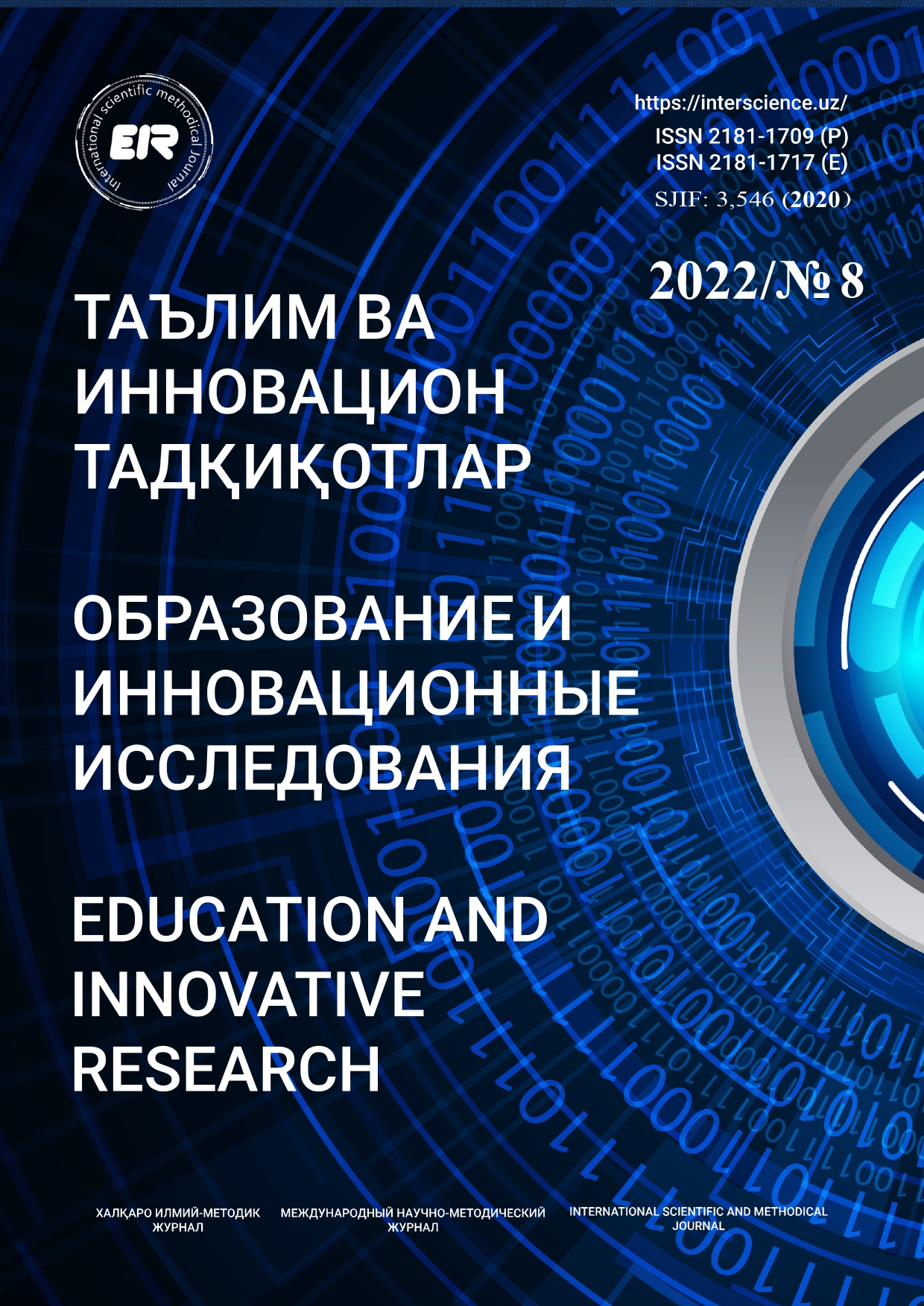МЕХАНИЗМЫ ПРОФЕССИОНАЛЬНОГО ОРИЕНТИРОВАНИЯ УЧЕНИКОВ В УСЛОВИЯХ ЦИФРОВОЙ ЭКОНОМИКИ
Кабилова Угилой Камилджановна Директор школы № 233 города Ташкента
Ключевые слова:
профессия, ученик, школа, классный руководитель, внешкольное образование, школьный психолог, адаптивная система, виды профессий.Аннотация
В данной статье представлена информация о механизмах ориентации учащихся на профессию в условиях цифровизации экономики, о сотрудничестве классного руководителя, школьного психолога и внешкольного образовательного учреждения в этой деятельности. Также в статье раскрываются педагогические, психологические и методические аспекты ориентации студентов на профессию через вопросы сотрудничества. Особое внимание было уделено внедрению адаптивной системы в образование при приобретении профессиональных навыков учащимися общеобразовательных школ.
Библиографические ссылки
Nedelcu, A. 2008. Fundamentele educației interculturale, Iaşi: Polirom, pp.28-32
Georgiu, G. 2010. Comunicare interculturală. Probleme, abordări, teorii, Bucharest: Comunicare.ro, p. 121
Ilie, G. 2014. Oferta educaţională şi piața muncii. Între dezechilibru şi corelare, Craiova: Editura Sitech, p. 29
Williamson, O. The New Institutional Economics: Taking Stock, Looking Ahead / O. Williamson // Journal o! Economic Literature. - 2000. - № 3. -Pp. 595-613.
Torres, R. Innovaciyn y Tecnolog Ha: necesidad de cambiosenlos procesos de ensecanza - aprendizaje, inclusiyn de competencias y compromisodesde la formaciyndocente / R. Torres // Vivat Academia. - 2012. - № 817 - Pp. 1520-1544.
Reiman, Alan J. What does innovation mean for moral educators? / Alan J. Reiman, H. Dotger Benjamin // Journal of Moral Education, - 2008. - Vol. 37. -№ 2. - Pp.151-164.





